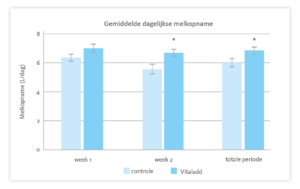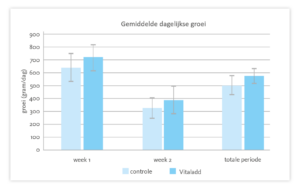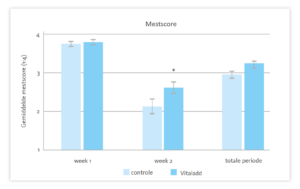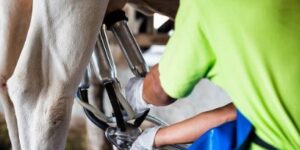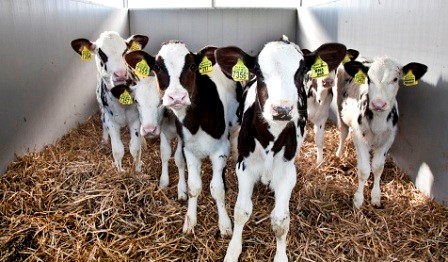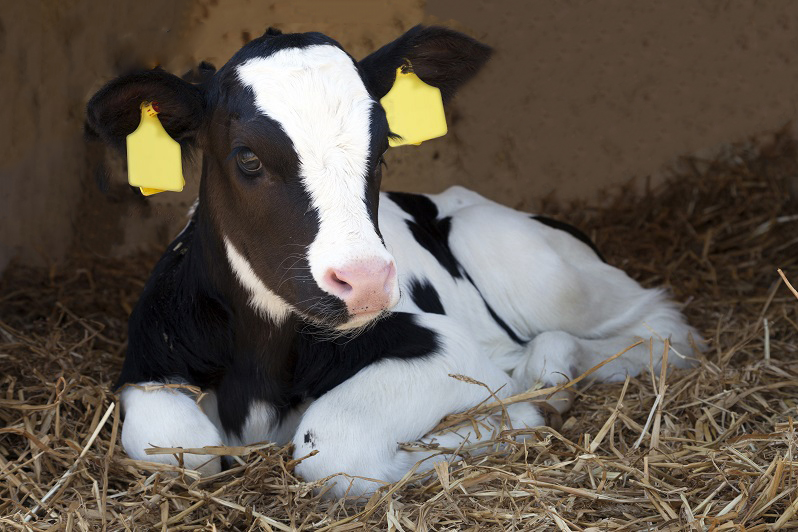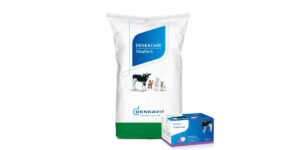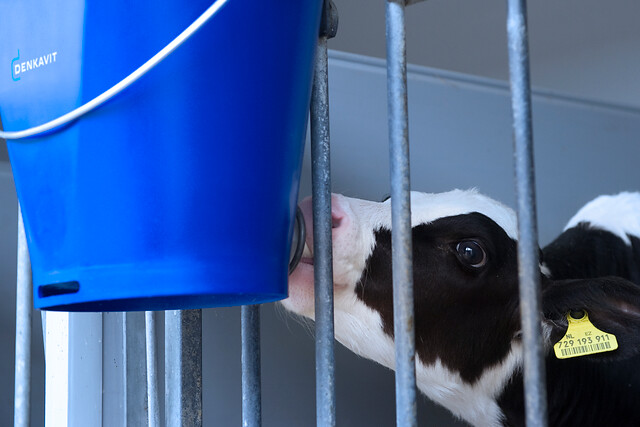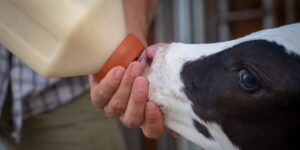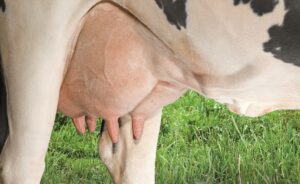
Cow’s milk then and now
The composition of milk from dairy cows has changed over the years as a result of advances in breeding and nutrition. While the fat and protein content has
increased, the concentration of vitamins and minerals has decreased. As a result, the composition of cow’s milk no longer fully meets the calf’s needs. The mineral and vitamin status of the calf is highly dependenton the transfer of these components across the placenta, colostrum and milk during gestation. Due to the lower concentration of some minerals and vitamins in cow’s milk, the calf is at risk of deficiencies. This can have a negative effect on the calf’s growth and immune system. Supplementing cow’s milk with minerals and vitamins ensures that the calf’s needs are met and its health is supported.
Bacterial growth in milk
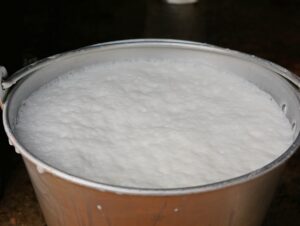 Cow’s milk is a perfect growth medium for bacteria. If cow’s milk is left in the bucket for a long period of time, the bacterial population can grow rapidly and have a negative impact on the calf’s health. Citric acid – contained in Vitaladd – lowers the pH of the milk, inhibiting bacterial growth.
Cow’s milk is a perfect growth medium for bacteria. If cow’s milk is left in the bucket for a long period of time, the bacterial population can grow rapidly and have a negative impact on the calf’s health. Citric acid – contained in Vitaladd – lowers the pH of the milk, inhibiting bacterial growth.
Coagulation
Cow’s milk contains casein protein, which must curdle in the abomasum to be properly digested in the small intestine. Vitaladd helps the milk to curdle in the abomasum.
Field study with Vitaladd
Denkavit conducted a field study with Vitaladd on a large dairy farm in eastern Germany. In the study, all calves were fed unlimited cold cow’s milk after colostrum. In the test group, 10 grams of Vitaladd per litre of cow’s milk was added every day. The control group received nothing mixed with the cow’s milk. Calves were weighed at birth, 7 days and 14 days of age and milk intake, diarrhoea incidence and other health observations were recorded.
Results
Calves fed Vitaladd:
- Higher milk intake
- Had a higher growth rate of ± 75 grams per day (= almost 1 kg more in the first 14 days);
- Had better health with less diarrhoea and better vitamin and mineral status.
|
|
. |
|
. |
|
From the results of this study we can conclude that adding Vitaladd to cow’s milk has a significant positive effect on the health and performance of young calves. As a result, Vitaladd can help you give your calves the best possible start.



